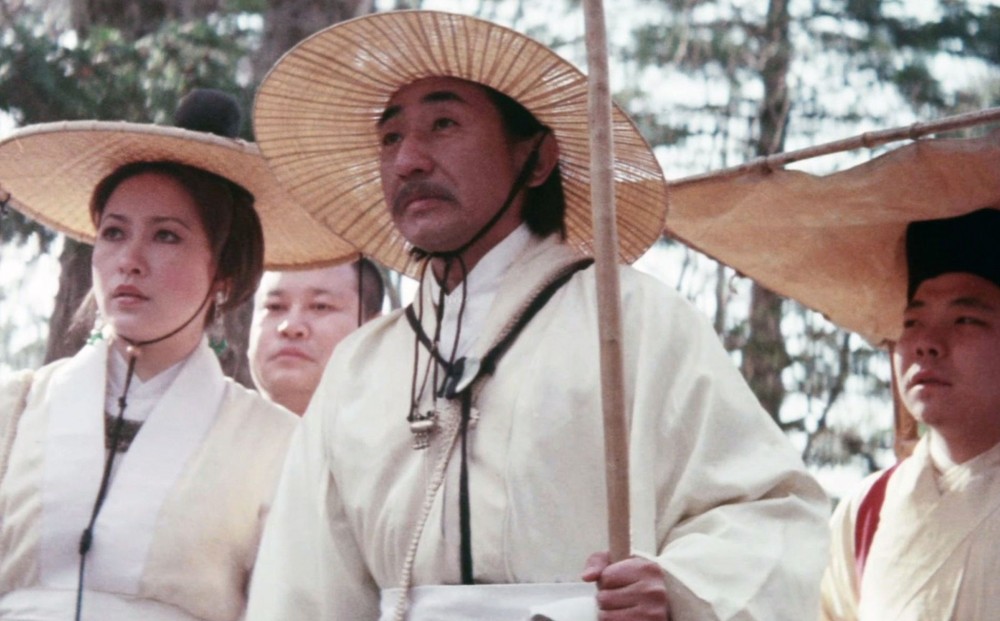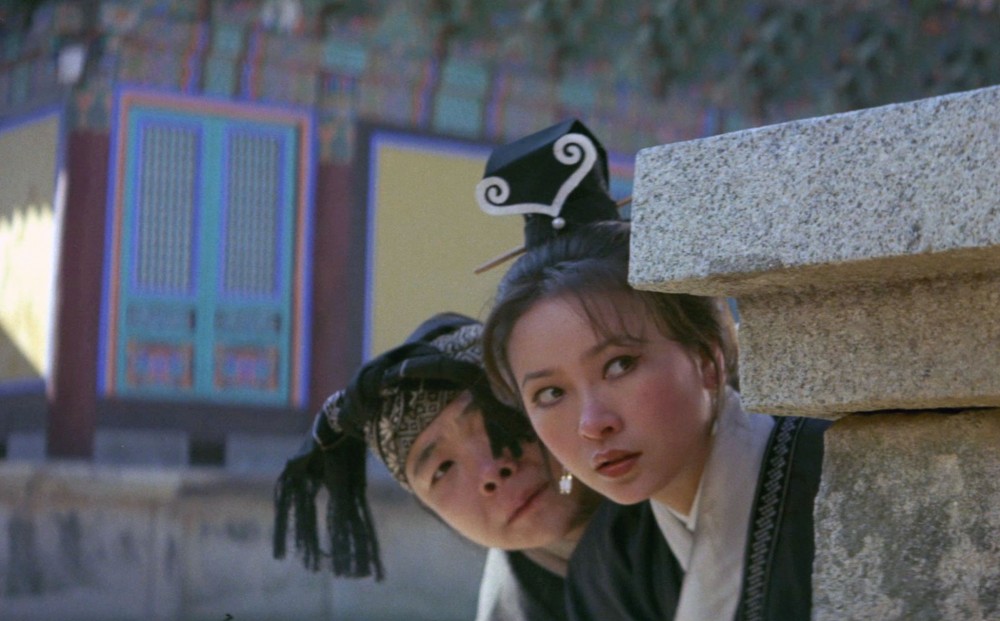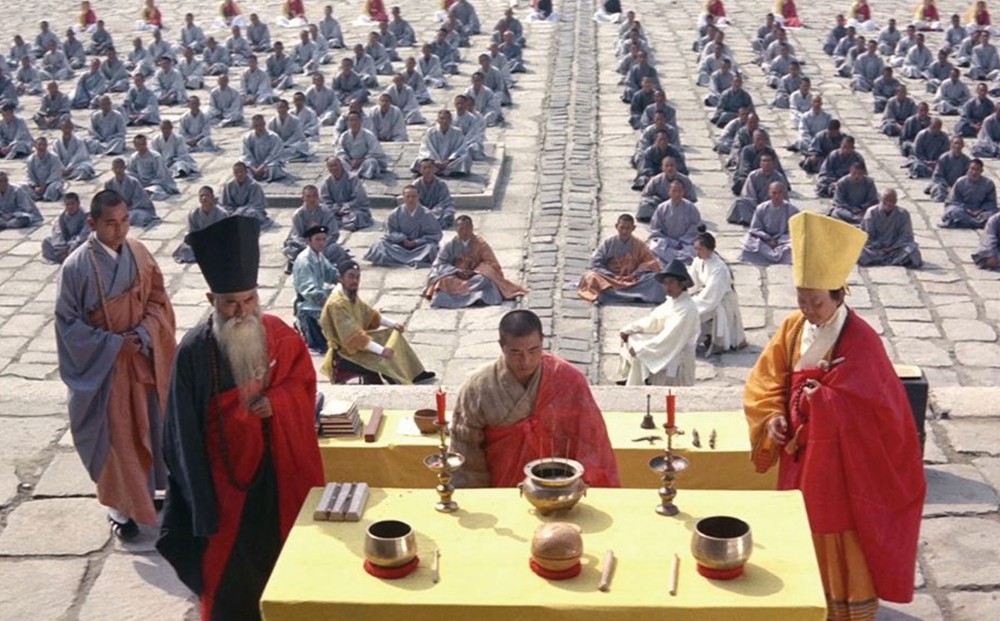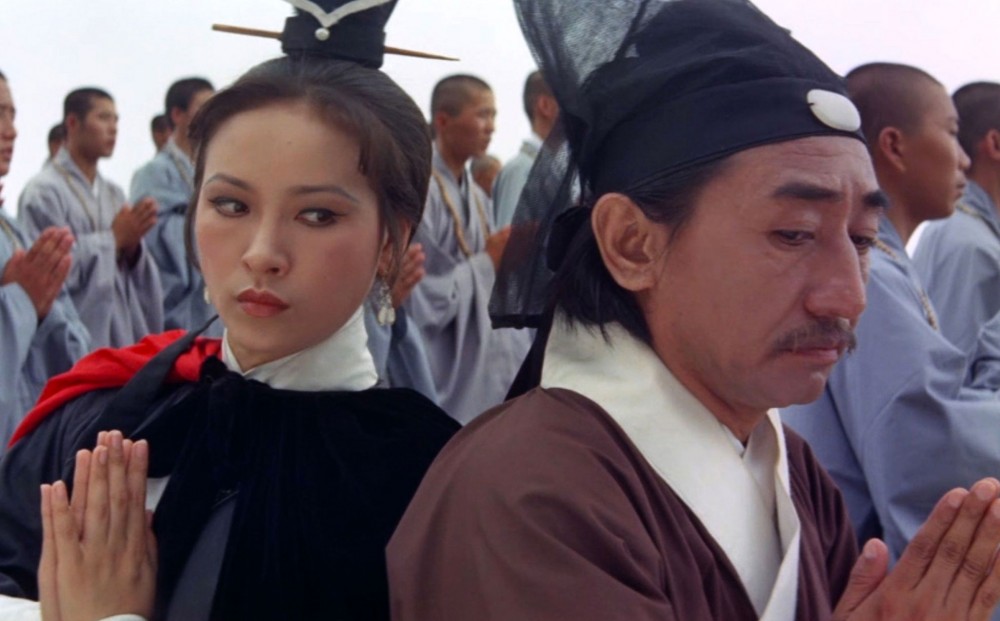King Hu’s
RAINING IN THE MOUNTAIN
Now Streaming
MUST END THURSDAY, DECEMBER 10
FROM THE DIRECTOR OF A TOUCH OF ZEN
(1979) 16th century China (Ming Dynasty). In a remote monastery, corrupt monks conspire against each other for that plum job — Head Monk — and control of the ultimate MacGuffin: a crumbling Buddhist scroll. And with the arrival of a general and a wealthy aristocrat — each with their own stealthy thieves darting through the compound's labyrinthine corridors — the carefully-choreographed action begins, highlighted by a balletic pursuit by a posse of brightly-garbed women. One of two films (with Legend of the Mountain) made in South Korea by wuxia (Chinese martial arts) master Hu – both starring Taiwan/Hong Kong female super-star Hsu Feng, here as the cunning “White Fox.”
A FILM MOVEMENT RELEASE
Reviews
“CRITIC’S PICK. SPECTACULAR, EXHILARATING ENTERTAINMENT!”
– Glenn Kenny, The New York Times
“AN IMPRESSIVE ACHIEVEMENT… BREATHTAKINGLY BEAUTIFUL. Hu's constantly mobile camera makes ludic use of his location, the Bulguksa Temple in South Korea, with long intricate takes tracking the rival miscreants as they pursue or hide from each other, dodging through doorways or scurrying along corridors. Hu often observed that his fights were staged like dances, and there's a dancing agility here to the camerawork, abetted by Ng Tai Gong's lively, percussive score… Scrupulously restored by the Taiwan Film Institute, the subtle widescreen color looks glorious.”
– Phillip Kemp, Sight & Sound
“Stylized gesture, pantomime humor, flurries of color and fighting: King Hu's tale of a power struggle in a Ming dynasty monastery has all the abrupt magic of a fairy story, with its villains, good guys, and secret treasure.”
– Chris Auty, Time Out (London)
“[Blends] heist movie and spiritual parable... Hu contrasts the serene surrounding landscape with the labyrinthine monastery where the dubious efforts of the thieves play. One of Hu’s lighter undertakings, but it’s also brimming with his ruminations on man’s capacity for corruption and redemption.”
– John Berra, BFI
“It is safe to say that subsequent wuxia, or martial arts films generally, would not look or move quite like they do without Hu. What has largely been discarded, however, is the pedagogic intent in his entertainments. He was an adherent to Chan Buddhism and his faith was an important part of his narratives. In this respect, the ascetic Tsai Ming-liang is as much an inheritor to Hu’s tradition as the flamboyant Tsui Hark, with one pursuing his spiritual seriousness and the other his physical buoyancy.”
– Nick Pinkerton, Artforum




